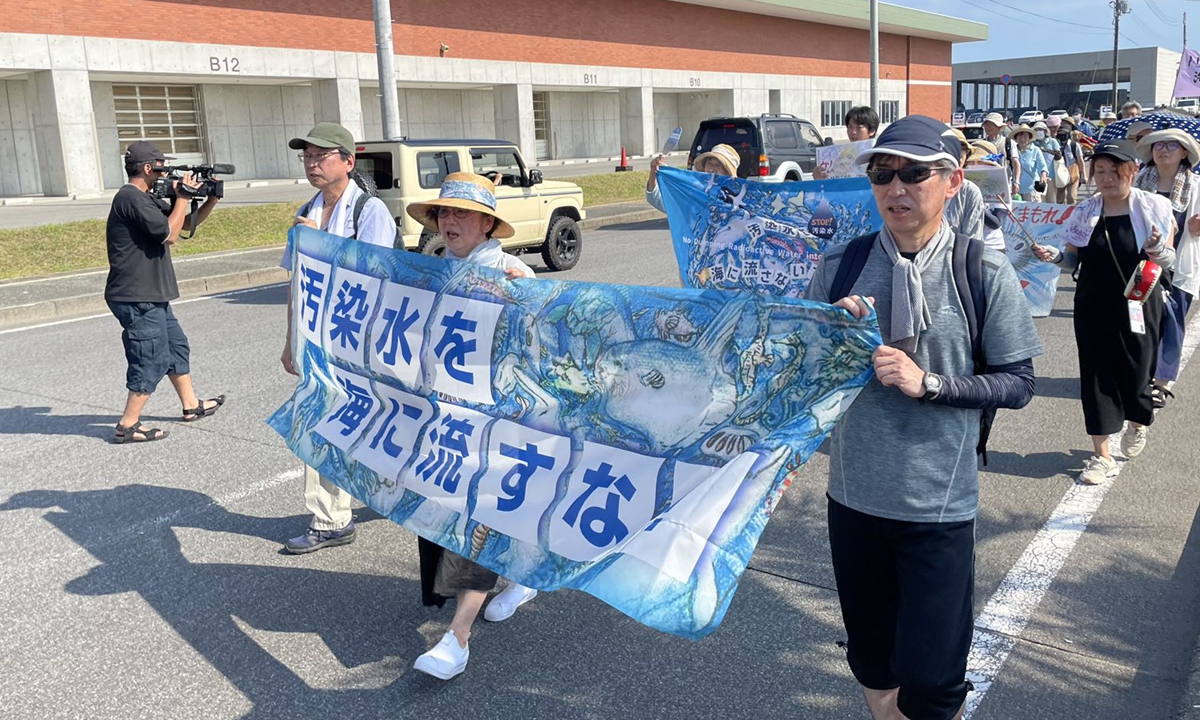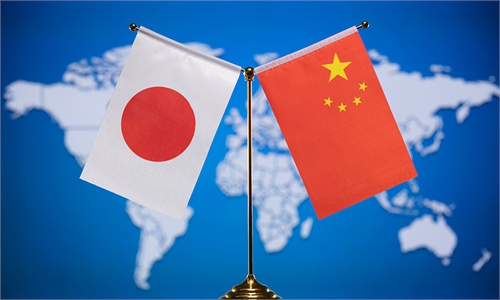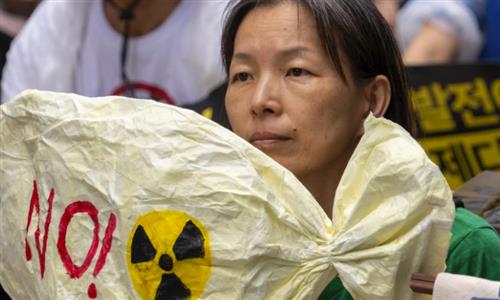
Holding banners that read "Don't dump the contaminated water into the sea," fishermen, fish immunology and genetic breeding experts and other local residents in Iwaki, Fukushima Prefecture take the street on July 17, 2023, to protest against Japanese government's plan to dump nuclear-contaminated wastewater into the ocean. Photo: Courtesy of Yoshitaka Ikarashi, a resident of Iwaki
Japanese media has reported that China has told Japan that its blanket radiation testing on seafood imports from Japan is necessary to protect its consumers. Chinese observers said they believe the bilateral diplomatic communication over the nuclear-contaminated wastewater issue can help restrict Japan from starting its arbitrary dumping of the water from the Fukushima nuclear power plant.An expert told the Global Times that facing the mounting pressure from home and abroad, divided opinions have appeared within the Japanese government, with some voices calling to put off the dumping plan.
The Kyodo News cited sources familiar with the bilateral relationship as saying that Beijing has communicated through diplomatic channels over its practice of detaining seafood imports from Japan at customs for up to a month before clearance. In addition to seafood, other food and beverage items from Japan, including rice, have also faced delays at Chinese customs following the introduction of blanket testing, according to Kyodo News.
In addition to seafood, other food and beverage items from Japan, including rice, have also faced delays at Chinese customs following the introduction of blanket testing, according to Kyodo News.
China in July announced the continuation of its previous ban on imported food from Japan's Fukushima and nine other prefectures since the 2011 Fukushima nuclear accident.
If Japan begins to dump the nuclear-contaminated wastewater, diplomatic exchanges and trade measures can be feasible countermeasures, Chang Yen-chiang, director of the Yellow Sea and Bohai Sea Research Institute of Dalian Maritime University, told the Global Times on Sunday.
But the expert revealed that Japan has not been candid and has always been responding with vague wording and data, trying to prevaricate when China asked it for data and detailed information over disposal of the contaminated wastewater.
China could expand the import ban to other agricultural and food products from the high-risk areas near Fukushima, Chang said.
Banning goods with potential nuclear contamination risks can be extended to other regions apart from Fukushima in Japan and products beyond seafood in accordance with relevant import regulations, the expert pointed out.
"This could be one of the reasons why Japan has so far not yet discharged the nuclear-contaminated water," Chang said. He noted that previously Japanese government officials had basically held favorable views toward the dumping plan.
"We should also inspect and monitor mutations in sea creatures to see if they can still be consumed as food. Also, we should monitor the amount of fish and other maritime creatures in the sea to see whether they decrease significantly after the discharge of the nuclear-contaminated wastewater," he noted. If so, China can file an international lawsuit against Japan, he added.
Chinese authorities have recently seized a batch of banned nuclear-contaminated food from Japan in Jiashan county, Jiaxing city, East China's Zhejiang Province, as they carry out strict scrutiny of food imports to protect the safety of Chinese consumers. The batch of food includes candy, chocolates and beverages, Beijing Business Today, reported.
Law enforcement officers inspected the Zhejiang Shopping Jiaxing New Retail Technology Co and found 46 packs of Fujiya brand grape-flavored soft candy, 21 packs of Fujiya brand apple-flavored soft candy, four boxes of Fujiya brand chocolate, and 10 bottles of Suntory brand peach juice. The origin of these food products includes Fukushima Prefecture, Toyama Prefecture, Saitama Prefecture, and Nagano Prefecture in Japan.
The products are prohibited from being imported according to the Announcement on Strengthening the Inspection and Quarantine Supervision of Imported Food and Agricultural Products from Japan issued by Chinese authorities.



